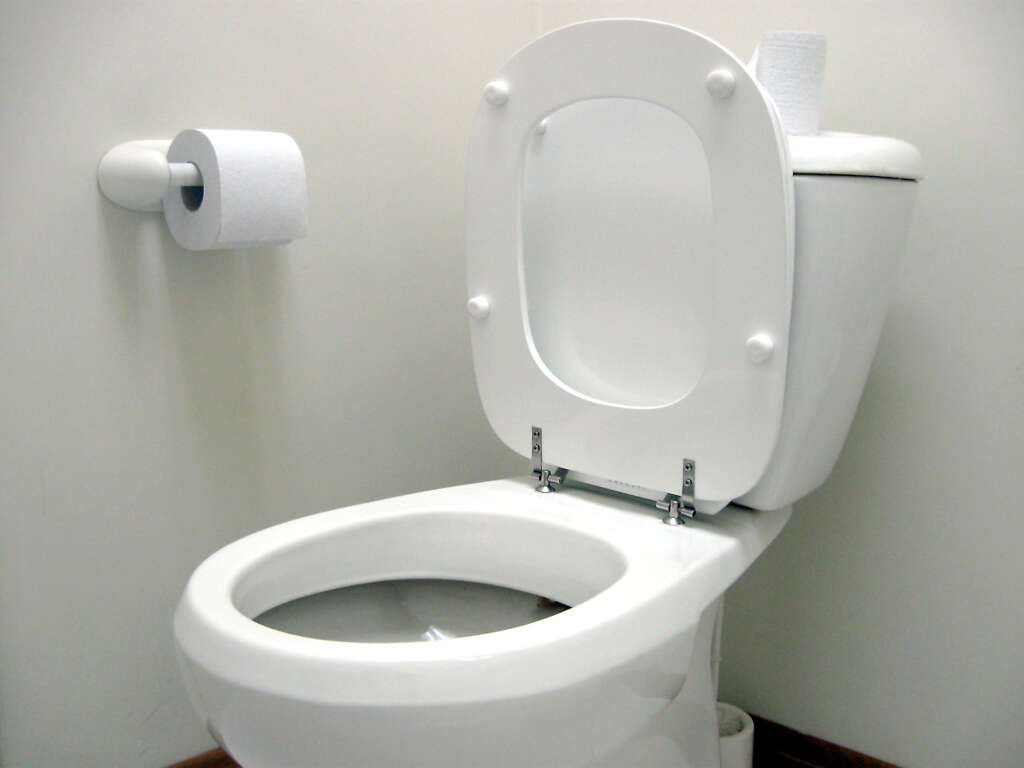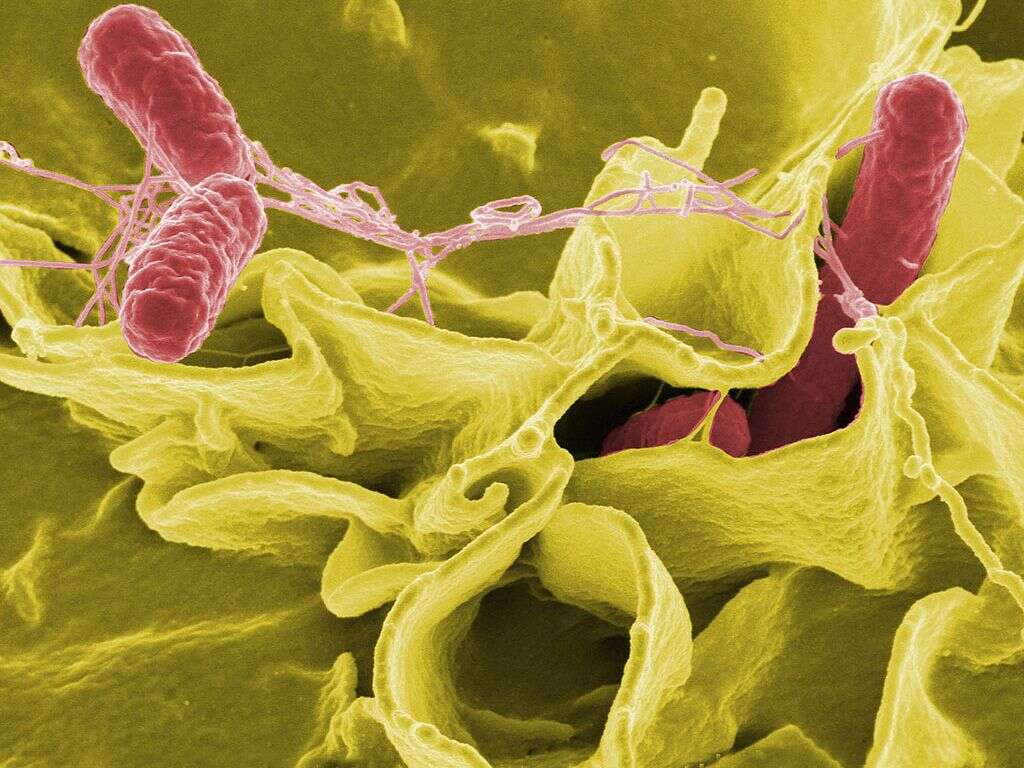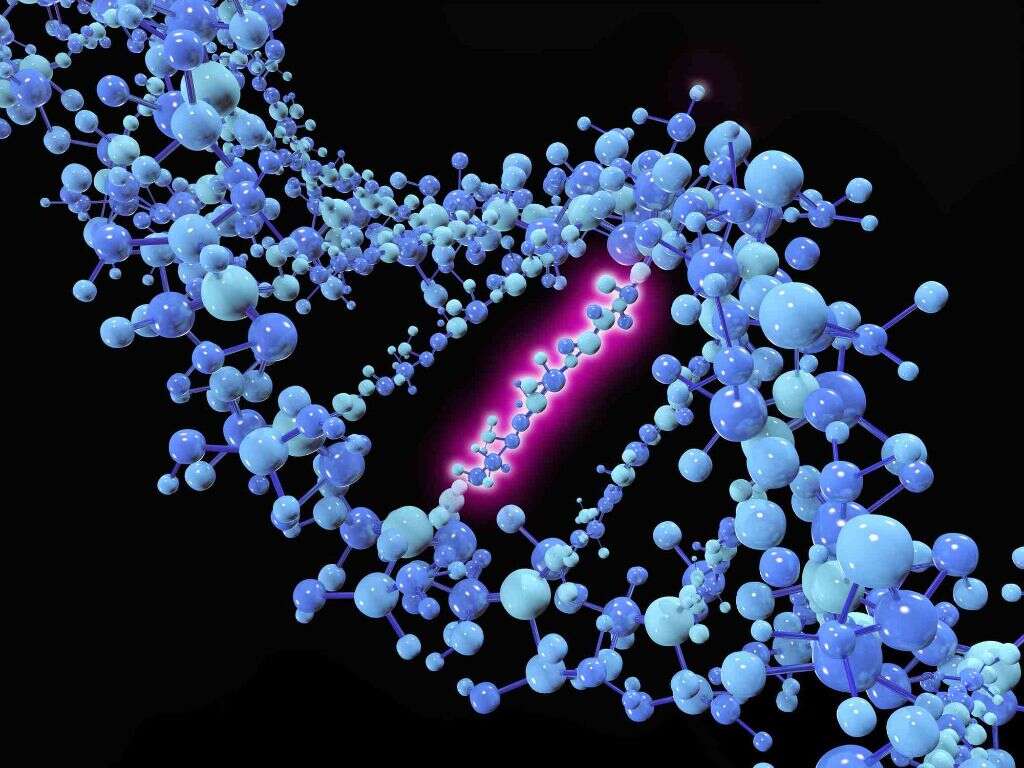10 Ulcerative Colitis Symptoms
Ulcerative colitis, or UC, is an inflammatory bowel disease that mainly affects the lining of the large intestines, also called colon, and the rectum. Ulcerative colitis sometimes also affects the lower portion of the small intestines. The inflammation causes ulcers which bleed and may also produce mucus and pus.
It is not clear what causes ulcerative colitis. However, immune system reactions, prolonged use of non-steroid anti-inflammatory drugs (NSAIDs), genetic factors and stress are all related to this disease.
The condition runs in families. This means that a person whose close family member has UC is more likely to get it. Ulcerative colitis usually occurs in people aged 15 to 30 years. However, it can also affect people of other ages.
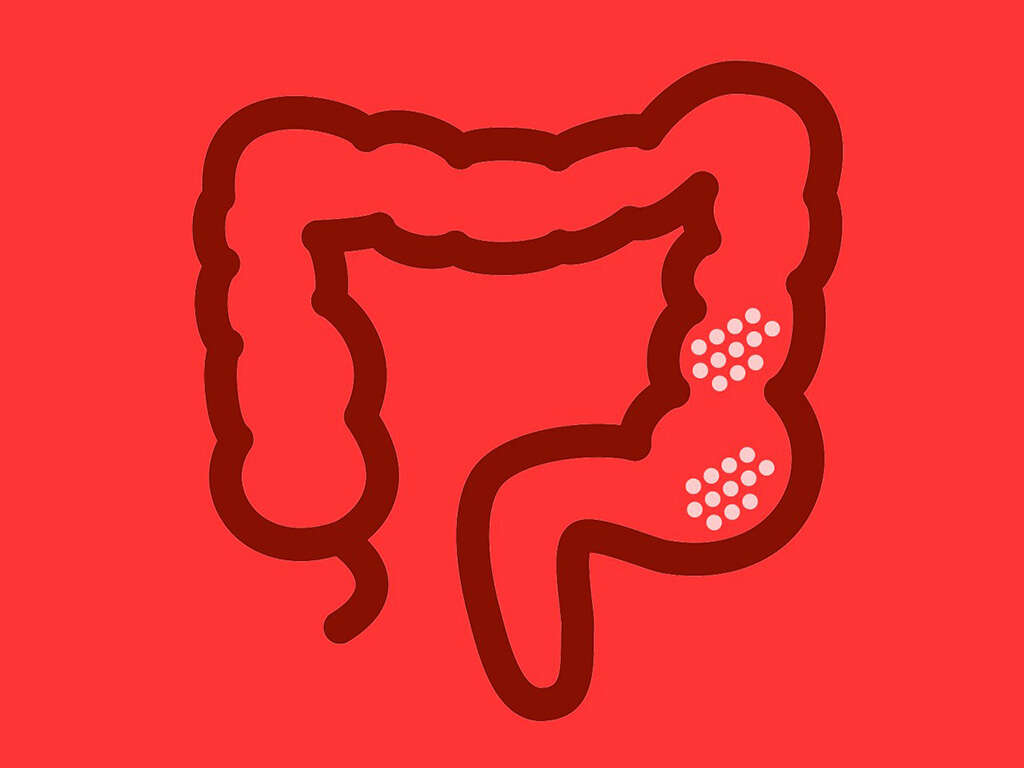
Symptom #1: Diarrhea
Diarrhea is a common ulcerative colitis symptom. This is because the inflammation causes continuous contractions of the colon. This means that whatever gets into the colon is soon forced outwards through the rectum. This is the same reason why you may experience a recurrent urge to empty your bowels.
Additionally, the stools may contain blood or pus or both. This is because the inflammation causes sores and ulcers to form in the lining of the colon. These ulcers may bleed as well as ooze pus. The resultant blood and pus mix with the waste material moves through to the rectum. How often you pass stools, how bloody the stools are besides other symptoms indicate the severity of the ulcerative colitis attack, more frequent diarrhea, more blood in the stools and more pain are indicative of more severe UC.

Symptom #2: Abdominal Pain
Abdominal pain is another primary symptom of ulcerative colitis. The pain occurs because of several factors. As with any other ulceration, the colon ulcers caused by UC are a type of wound and can therefore be painful. Additionally, the increased contraction or cramping in the affected parts of the colon can lead to pain and discomfort. The frequent movement of waste through the colon may also keep the ulcers in a raw state.
All these factors can lead to abdominal pain that either comes and goes or is chronic in nature. In some cases, UC only affects the rectum and the pain is localized to the rectum. This type of UC is called ulcerative proctitis.
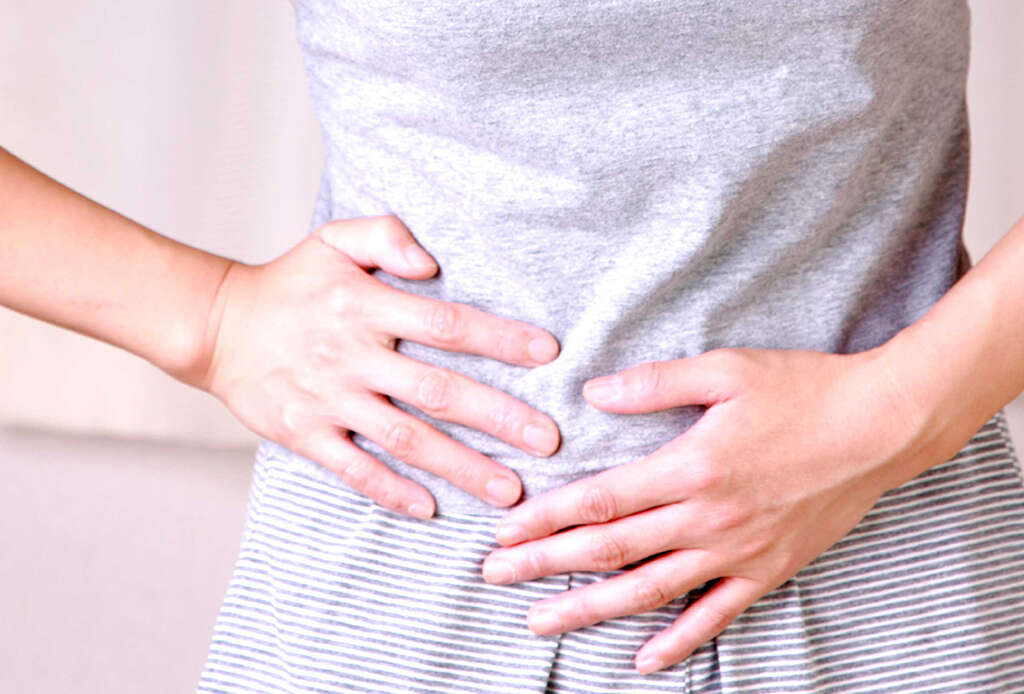
Symptom #3: Urgent Urge To Defecate
A patient with UC may feel an urgent urge to defecate. This feeling may keep coming back even after having a bowel movement. This happens because, as previously discussed, the inflammation caused by ulcerative colitis keeps the colon in a constant state of contractions.
As a consequence, any little waste that comes into contact with the ulcers in the colon can cause irritation. This irritation leads to an urge to defecate in order to rid the colon of the waste. It is worth noting that frequent bowel movement with stools having blood stains and pus can lead to significant loss of blood which can lead to anemia. For this reason, if you have ulcerative colitis symptoms, seek medical treatment.

Symptom #4: Constipation
Instead of diarrhea, some people with ulcerative colitis suffer from constipation. Others may have both diarrhea and constipation at different times. Generally, constipation is a situation whereby you have three or fewer bowel movements in a week. In both situations, the patient may have an urgent urge to have a bowel movement. However, while stools come out in one, nothing comes out in the other.
This symptom could be an early manifestation of Ulcerative Colitis and especially when the disease is limited to the rectum. Many conditions may cause constipation, therefore, you should seek medical attention for proper diagnosis.
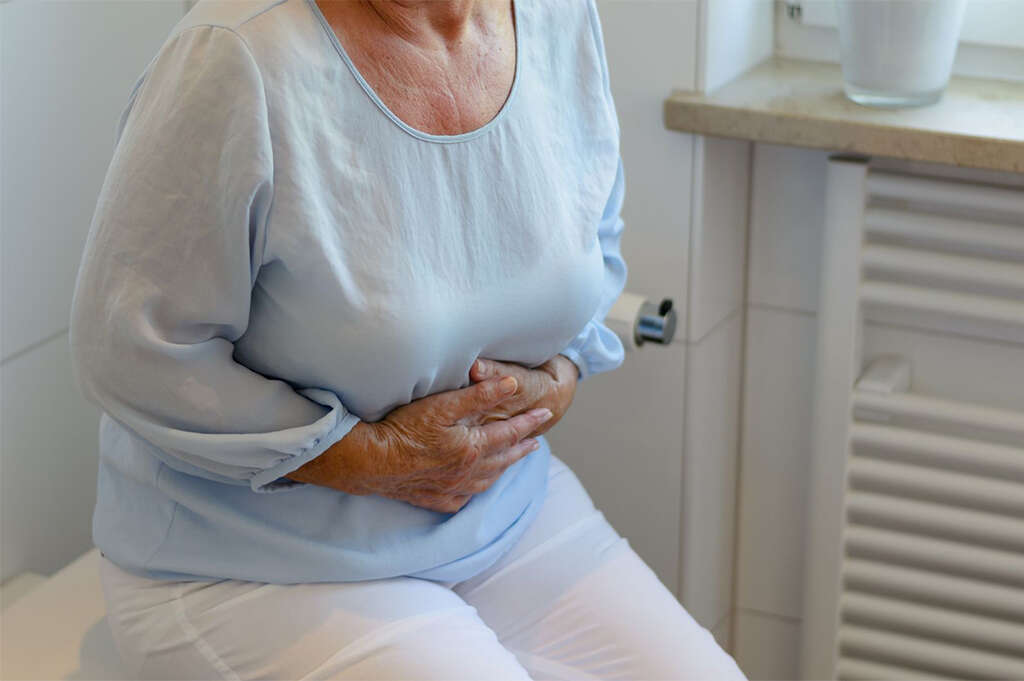
Symptom #5: Fatigue
Fatigue is what you get when your body is unable to cope with the demands of its various functions. Ulcerative colitis symptoms like diarrhea and bloody stools lead to constant loss of fluids and nutrients. These symptoms in addition to others like abdominal pain and cramping cause the body to expend a lot of energy as it tries to get back to normal. The loss of blood can also mean that your body becomes deficient of red blood cells and the hemoglobin which transports oxygen throughout the body.
This can have a serious toll on the body and lead to extreme tiredness and lack of energy. A patient may also experience reduced appetite, making it difficult for the body to recover the lost nutrients and fluids. Fatigue can make it difficult for you to carry out tasks you would otherwise handle with little effort.

Symptom #6: Weight Loss
The body maintains healthy weight if it gets the necessary nutrients that it requires. If it is constantly losing nutrients and not replenishing them, weight loss becomes inevitable. A person with ulcerative colitis loses nutrients and fluids including blood. The patient is also likely to have reduced appetite due to abdominal pain and discomfort.
Additionally, the digestive disturbances may lead to malabsorption of some nutrients. When all this is happening, a lot of energy is required to help the body cope with the symptoms and to ultimately recover. This demand on the available limited resources can mean that the body will use a lot of its reserves for maintenance. When this goes on for an extended period of time, it causes a significant loss of weight.

Symptom #7: Poor Appetite
According to some studies, 10 percent of people with ulcerative colitis suffer from poor appetite. While some of these people may generally have a poor appetite, it is worse during an attack. If you have ulcerative colitis, you may develop a poor appetite due to a number of reasons.
Because some foods trigger a UC attack, you might avoid foods that you feel may be causing the problem. You might also feel that eating causes you increased pain. This can cause you to avoid eating and only eat when you have to. No matter how this happens, poor appetite means that the little food that you eat cannot provide all the nutrients that your body needs. This can lead to loss of weight and other ulcerative colitis symptoms like fatigue.
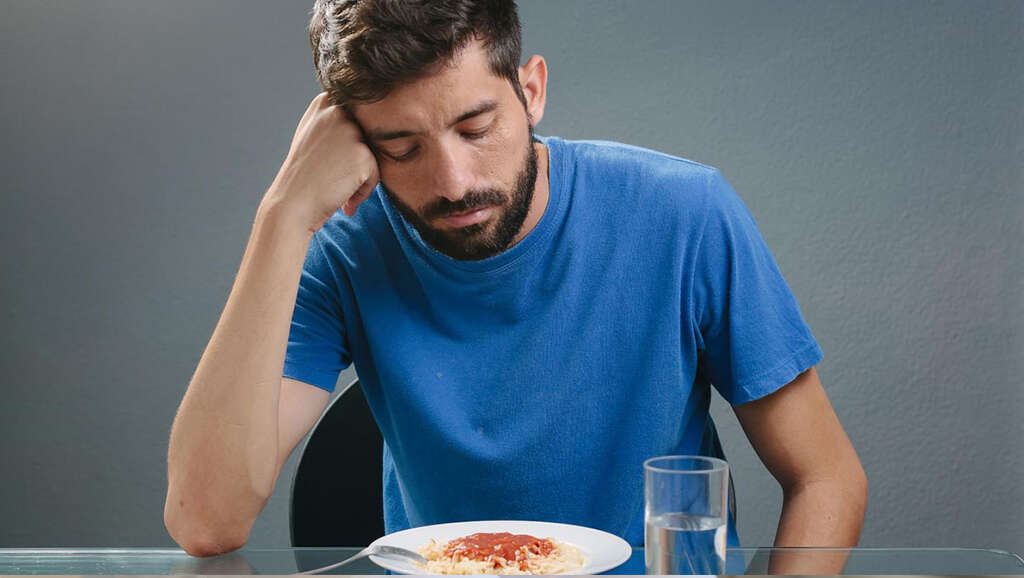
Symptom #8: Fever
Infections cause the body to react by raising body temperature, also called fever. This also happens to people with ulcerative colitis and other inflammatory bowel diseases like Crohn’s disease. Fever may be an indication of a UC complication such as an abscess or toxic megacolon.
While the primary cause of the fever is usually the UC disease; fever may also be a side effect of some medications used in the treatment of ulcerative colitis. Culprit medications include infliximab, sulfasalazine, 6-mercaptopurine and azathioprine. Other symptoms that may occur together with fever include chills and night sweats. When fever symptoms like sweating occur at night, they may interfere with your sleep. This may be partly to blame for other ulcerative colitis symptoms like fatigue.

Symptom #9: Delayed Growth In Children
Most normal children reach their milestones at about the same age as the others. However, children with ulcerative colitis take longer to reach their milestones. This means, for example, while puberty normally begins between the ages of 8 and 14, it is likely to come later in children with UC.
The delay in growth and puberty can be attributed to factors like poor appetite, poor absorption of nutrients and loss of nutrients due to persistent diarrhea. These factors rob the body of nutrients that are essential for proper growth and maturity. Additionally, the chronic inflammation of the colon may also interfere with hormonal balance. Hormonal balance is critical for growth and maturity.

Symptom #10: Anemia
Anemia is not strictly an ulcerative colitis symptom. It is a sign of UC complication. Bleeding from sores and ulcers in the colon leads to a significant loss of blood. When this has been going on for a long period of time, it can lead to anemia.
Anemia is a condition in which the body does not contain enough blood to transport oxygen which is required for the production of energy. Hemoglobin is the material that gives red blood cells their color. This is the component of blood that carries oxygen from the lungs to the different tissues and organs of the body. If the body does not get adequate oxygen, it cannot produce all the energy it requires for all its functions. As a result, the body prioritizes survival. This is the reason an anemic person feels chronically tired or fatigued.




